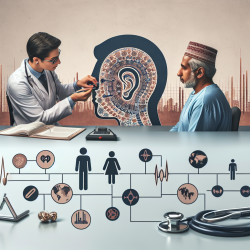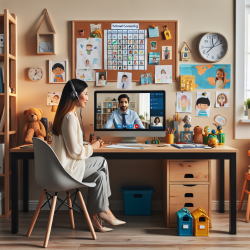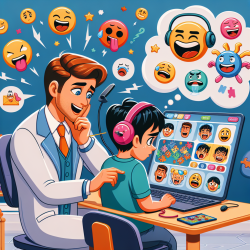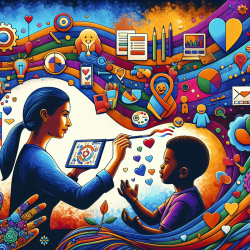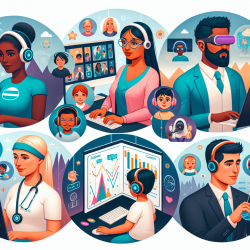In the realm of audiology, the focus often lies on the clinical and technical aspects of hearing loss and rehabilitation. However, the research article "An Audiological Perspective on the Psycho-Social Impact of Hearing Loss in Everyday Life: An Anthropological View" provides a compelling argument for integrating anthropological insights into audiological practice. This approach not only enriches our understanding of the psycho-social dimensions of hearing loss but also opens new avenues for improving patient care.
The article, featured in a special issue edited by M. Kathleen Pichora-Fuller, sheds light on the handicapping effects of hearing loss from an anthropological perspective. It emphasizes the importance of considering the cultural and social contexts in which individuals with hearing impairment live. This multidisciplinary approach challenges conventional wisdom and encourages audiologists to think beyond the audiogram.
One of the key insights from the article is the distinction between impairment, disability, and handicap. Impairment refers to the abnormality of function, disability to the loss in normal function resulting from impairment, and handicap to the effects of disability on daily living. The article argues that disability and handicap are significantly influenced by the social and cultural contexts in which they occur. Therefore, audiologists must take into account these contexts to promote successful rehabilitation.
Another crucial theme is the concept of hearing accessibility and the "soundscape." This notion highlights that hearing difficulties should not interfere with anyone's participation in any activity or place, regardless of their hearing status. This perspective calls for a shift in how professionals define, measure, and reduce disability by incorporating hearing accessibility into clinical models.
The article also explores the impact of social stigmatization on individuals with hearing impairment. It underscores the importance of understanding how societal perceptions and stigmas can affect the rehabilitative process. By adopting an anthropological view, audiologists can better address these challenges and support their patients in adapting to their hearing impairments.
Furthermore, the research stresses the significance of self-identity in individuals with adult-onset hearing disability and handicap. The audiological rehabilitative process should address the reconstruction of an individual's self-identity as a visibly hearing-impaired person. It also must respect an individual's choice not to publicly acknowledge their hearing impairment. This approach necessitates a range of services that extend beyond traditional intervention techniques, including modifications in the physical and social environments.
From an urban audiologist's perspective, three additional issues arise from the article's findings. First, the increasing diversity in U.S. cities requires audiologists to consider the cultural, ethnic, and racial backgrounds of their patients. Second, while new approaches offer valuable insights, they should not overshadow existing knowledge. Third, the education of future audiologists should embrace multidisciplinary perspectives to enhance the effectiveness of models and methods within the cultural milieus of patients.
This research article invites audiologists to broaden their perspective by integrating anthropological insights into their practice. By doing so, they can better understand the complex interplay between hearing impairment and the psycho-social dimensions of their patients' lives. This holistic approach not only enhances patient care but also contributes to the advancement of the field of audiology.
Incorporating these insights into practice requires a commitment to continuous learning and an openness to multidisciplinary approaches. Audiologists are encouraged to engage with literature from anthropology and related fields, attend multidisciplinary conferences, and collaborate with professionals from diverse backgrounds. By embracing these strategies, practitioners can improve their skills and, ultimately, the quality of life of individuals with hearing loss.
To further explore the insights and outcomes presented in this research, audiologists and practitioners are encouraged to read the original article. By doing so, they can gain a deeper understanding of the psycho-social impact of hearing loss and how an anthropological perspective can enhance their practice. An Audiological Perspective on the Psycho-Social Impact of Hearing Loss in Everyday Life: An Anthropological View.
